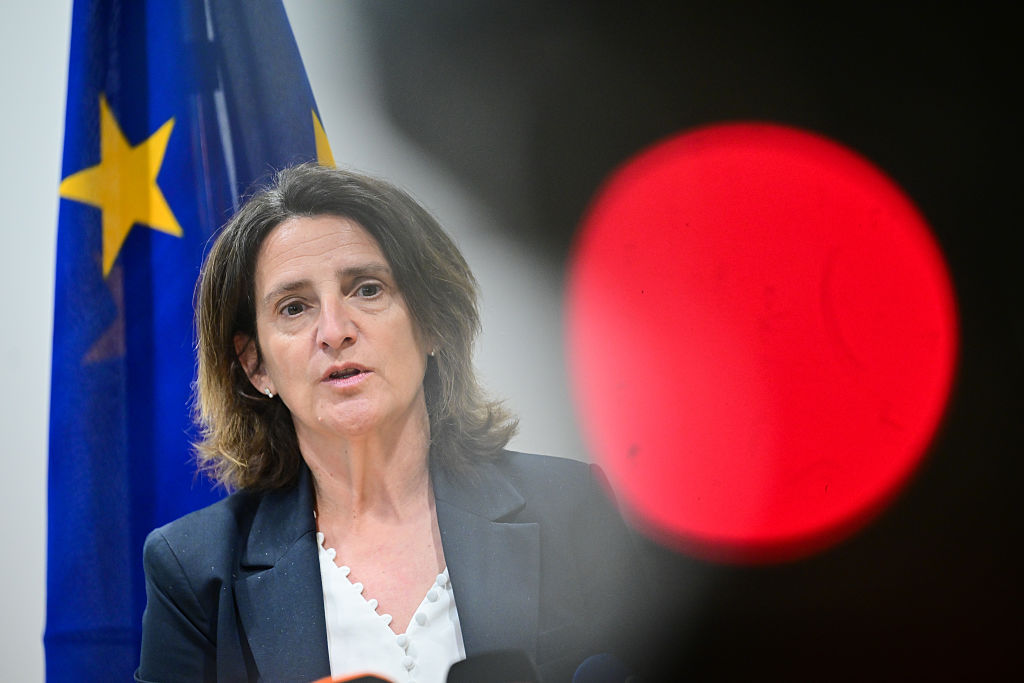Competition Commissioner, Teresa Ribera, said she does not support “stopping the clock” or “backtracking” on any EU legislative initiatives at an event on Tuesday where she also defended the bloc’s AI rules.
The remarks by the bloc’s competition chief and de facto deputy to EU president Ursula von der Leyen come amid industry-led calls to block the rollout of the AI Act. The Commission is also working on its own plan to simplify a raft of existing EU rules – including via a digital omnibus package that’s expected to introduce simplification measures later this year, including to the AI Act.
Ribera warned against the EU “rolling back on what we have achieved” in “general terms” during the speech.
She also responded to Mario Draghi’s recent direct criticism that the bloc’s AI rules go too far – saying that there are “tensions” which the rules address.
On this she cited the concerns of publishers, the press, and creators about how AI-generated summaries were “killing” the possibility of receiving any remuneration. She also highlighted what she described as “the big theft of our data and intellectual creativity” reflected in AI summaries that don’t credit the sources they’ve drawn from.
Ribera’s comments follow a visit to New York last week where she spoke with US regulators and competition authorities on EU digital competition topics.
EU relations with the US “have not been easy” this year, she acknowledged today, but said transatlantic political tensions had taught the EU a lesson against “too much reliance” on US tech and innovation.
She also suggested that EU and US competition authorities “intend to reach the same goal”.
In further remarks, Ribera said it’s not her belief that the EU’s tech laws are damaging EU–US relations – referring to the US administration’s criticism of the Digital Markets Act (DMA), which she oversees, and her recent decision, as Commission competition chief, to fine US AdTech giant Google €2.95 billion.
The beneficiaries of EU rules that aim to level the playing field for businesses sit outside the bloc too, she also argued.
“Around 75% of the new players benefiting from European regulation come from the United States,” she noted, adding that there are also “American businesses” urging EU authorities “to work in the European digital markets”.
(nl)
